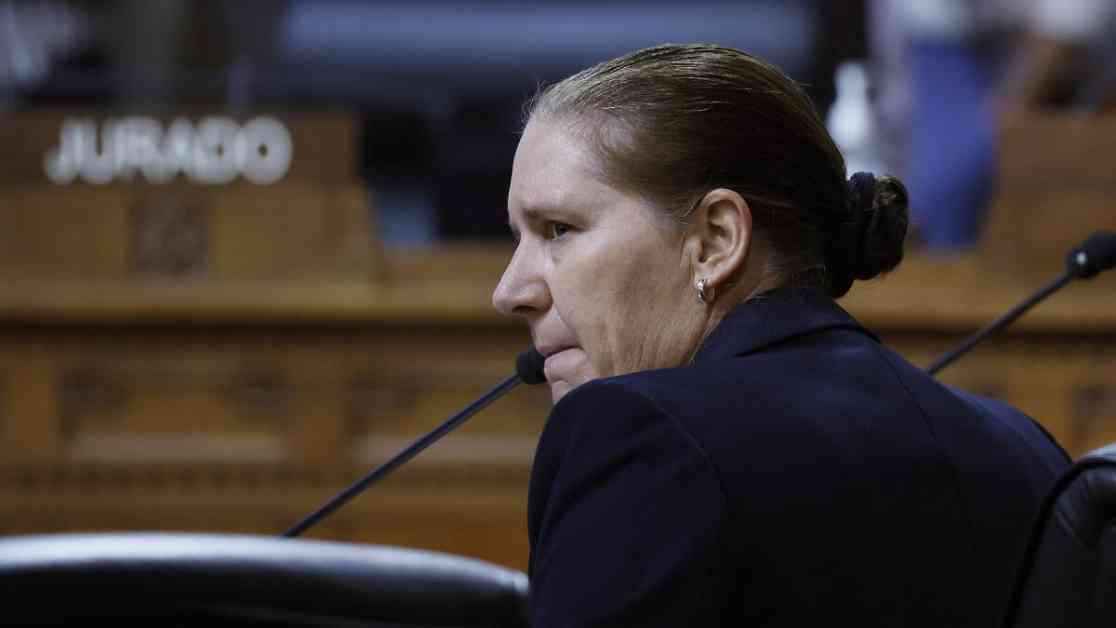Former Los Angeles Fire Chief, Kristin Crowley, faced a challenging battle to reclaim her position after being ousted by Mayor Karen Bass following the Palisades fire incident. Despite strong support from the firefighters’ union, the Los Angeles City Council voted 13 to 2 against Crowley’s reinstatement, delivering a significant political win for Mayor Bass. The decision came amidst a backdrop of tension and controversy, as Crowley publicly defended her actions and criticized the lack of resources in the fire department.
Crowley’s Fight for Reinstatement
During the council hearing, Crowley made her case for reinstatement, claiming that she was being retaliated against for speaking out about the needs and capabilities of the LAFD. She emphasized the importance of transparency and honesty in addressing the challenges faced by the department. However, Councilmember Imelda Padilla criticized Crowley for discussing the fire department’s budget with the media during the Palisades fire, questioning her timing and approach.
Despite Crowley’s impassioned plea, the council vote reflected a lack of confidence in her leadership, with only two members voting in her favor. The proceedings highlighted a deep divide within the city, with firefighters expressing frustration over long-standing issues of underfunding and resource shortages. Crowley’s supporters argued that she was unjustly targeted by Mayor Bass, while critics pointed to alleged mismanagement and insubordination as grounds for her removal.
Political Fallout and Public Backlash
The aftermath of Crowley’s firing revealed a complex web of political maneuvering and competing narratives. Supporters of Crowley accused Mayor Bass of scapegoating the former fire chief, while Bass’s allies portrayed Crowley’s reinstatement bid as a broader attack on the city’s leadership. The debate escalated into accusations of racial bias and political agendas, further complicating the already contentious situation.
As Crowley’s appeal faced rejection, tensions between city officials, firefighters, and community members continued to simmer. The public outcry over the handling of the Palisades fire underscored deeper systemic issues within the LAFD and City Hall. The decision to uphold Crowley’s termination sent a chilling message to city employees and department heads, raising concerns about accountability and transparency in public service.
Despite the emotional testimonies and impassioned pleas on both sides, the final outcome underscored the challenges of navigating complex political landscapes and interpersonal conflicts. The City Council’s rejection of Crowley’s appeal marked a significant turning point in the ongoing saga, leaving many to ponder the future of leadership and governance in Los Angeles.
In the wake of the contentious proceedings, questions lingered about the path forward for the LAFD and the city as a whole. The fallout from Crowley’s firing exposed deep-seated divisions and power struggles that threatened to undermine public trust and confidence in local government. As the dust settled on the heated debate, one thing remained clear: the need for accountability, transparency, and effective leadership in times of crisis.
As the city grappled with the aftermath of the Palisades fire and its political repercussions, the fate of Kristin Crowley served as a stark reminder of the complexities and challenges inherent in public service. The legacy of Crowley’s tenure as the first female chief of the LAFD would be forever marked by controversy, resilience, and the enduring quest for truth and justice in the face of adversity.
Let’s see what happens next in this unfolding drama.


